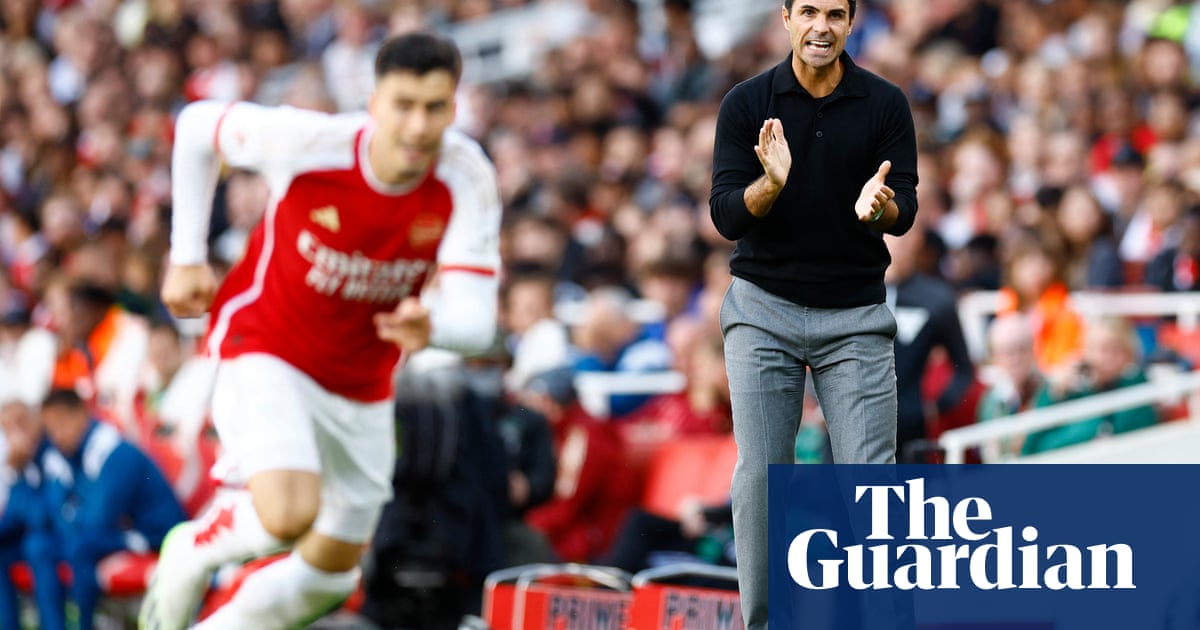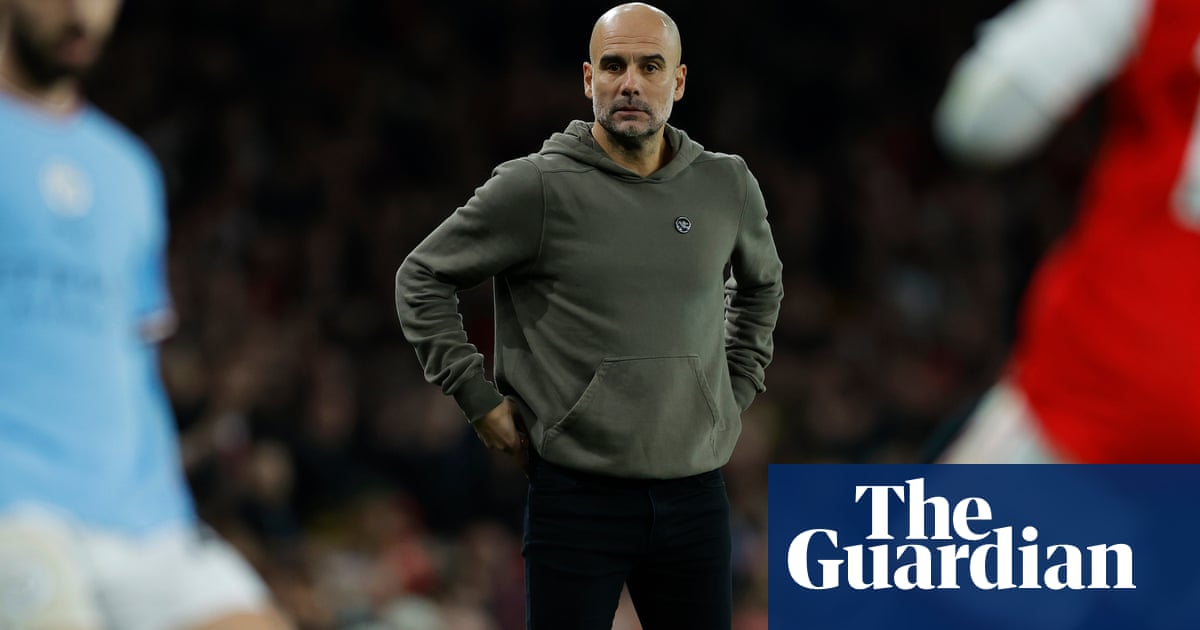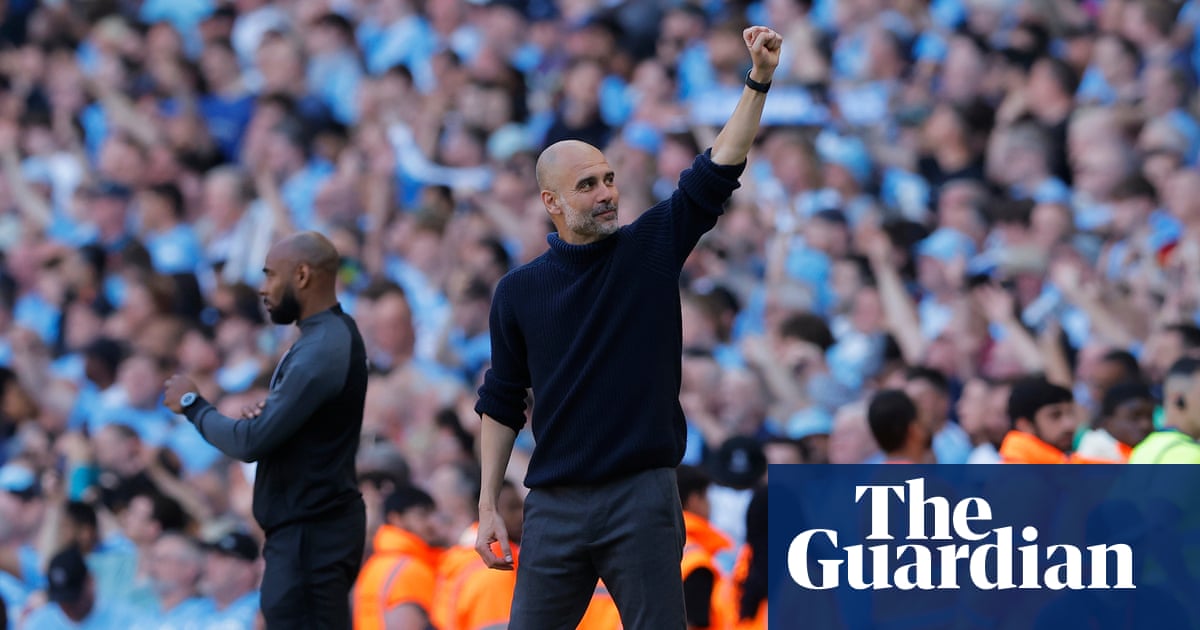
Mikel Arteta and Pep Guardiola always kept in touch (after their time together as players at Barcelona), and Arteta lived in the same neighborhood as Pep’s brother, Pere, when he was based in London with Arsenal. When Barça drew Chelsea in the Champions League in 2012, Pep picked up the phone to pick his old friend’s brain about their opponent. Impressed by Arteta’s critical analysis, Pep made a mental note to seek his advice more often.
In the 2015-16 season Pep’s Bayern Munich played Arsenal in the Champions League and Arteta got a chance to talk to Pep in the players’ zone after the game.
“We had a good chat and at the end he told me that he wanted to work with me if he ever moved to England,” says Arteta. “So when I retired [from playing] I called him and said: ‘Is that job still available?’”
There was just one problem: Arteta had already agreed with his wife, an actor, that, if she took care of the domestic side of things during his playing years, he would free her up to pursue her own career when he retired. She’s now doing just that and lives in Los Angeles, with the couple’s children. The situation is not perfect but Arteta has learned to make the best of it.
At City Arteta works closely with the players, often on a one-to-one basis, helping them understand key concepts or giving them the guidance they need to improve their performance. “It’s vital that management is in touch with the players and Pep just doesn’t have the time to spend time with all 24 of them every day,” explains Arteta. “It’s crucial that they feel able to tell us what they think they need to improve.”
His tiny office has three glass walls, through which he can often be seen huddled round the meeting table next to a player or gesticulating at the touchscreen whiteboard as he explains tactics or set pieces with a group. Most of City’s stars have spent time with him there over the last three years.
Arteta has been on a sharp learning curve since joining City’s coaching team in July 2016, immediately after retiring as a player. “From the start I was absolutely fascinated by Pep’s work ethic, by his ability to transmit his ideas to the players and convince them that they’re going to work. It’s incredible to see how he simplifies even the most complicated things so that they appear straightforward and easy. It’s very difficult to reach footballers like that.
“The very first day Pep took training, he got the whole squad out on the pitch and told them: ‘Manchester City does this when we have the ball and we do that when we don’t have it.’ And all of them understood exactly how we were going to play. It was non-negotiable. That talk lasted 15 minutes, but in those 15 minutes City was born. Everyone knew what would be asked of them from then on.
“He explained that sometimes we would adapt our game: ‘There’ll be alterations here and there depending on how our opponents attack and defend but basically our football will be exactly as I’ve just said.’
“We’d all watched his Barça and Bayern play and Pep insisted that this philosophy would continue. He showed the players footage and kept talking them through his ideas. It was clear that there was no going back. We knew how Pep’s Manchester City was going to be. And all it took was 15 minutes.”
Mikel Arteta says of Leroy Sané (left): ‘He struggled initially. My priority was to reassure him how much faith myself and the rest of the technical team had in him.’
Although Arteta has worked closely with a lot of players, he has had a particular influence on Leroy Sané. “He was just a kid and here he was, at a different club, where everything felt strange and new. I had a similar experience when I went to PSG, so I had some idea of what he was experiencing. You just have to push through it but it’s not easy and you need to know that the coaching staff are behind you. Everything’s different: training methods, having to play in much tighter spaces, a much faster game with no space to run into – and he struggled initially.
“My priority was to reassure him how much faith myself and the rest of the technical team had in him. I thought he’d be feeling a bit lost and that always makes you insecure, particularly at that age. We wanted to boost his confidence. We showed him a lot of videos so we could point out where the spaces were, what options he had, the mistakes he was making, how he could increase his intensity. That’s really my role here: to look for what’s missing in a player’s game. If I spot something, there’s no point in waiting for the guy to tell me about it. He might take three months to get round to it. Opening up like that to a coach, pointing out your own weaknesses, that’s not easy. What we do is create a safe place so that the players feel comfortable about sharing with us. That way we can then give them the tools to make the improvements they need.”
Pep showed Arteta that same level of trust when he arrived at City. He had joined a technical team that was already a functioning unit, but immediately felt like a trusted lieutenant. Pep called him into his office one day in his first season, before a home match against Arsenal.
“You’re in charge for this game,” the coach told him. “You’re more than capable of taking the team through the game. So, it’s up to you. Do what you think is best.”
Pep remembers the game well. “He knew the team much better than I did, he’d only stopped playing with them two months before. He knew what to expect from [Arsène] Wenger and I really had no doubts about entrusting the game to him. So I spoke to the players and told them, ‘Mikel’s in charge this week.’ I think they were maybe a bit taken aback initially but it was the logical thing to do, given Mikel’s experience with our opponents.”
Arteta recalls: “I’m not an idiot, so I’d already done a bit of preparatory work. I assumed he’d ask my opinion. So I told him how I saw it going: ‘This is what they’ll do, so I’d plan to play like this.’
“He liked my ideas and we went with my plan.” The result? A 2-1 win, with the decisive goal from Raheem Sterling.”
Arteta still likes to participate actively in training but now the competitive spirit takes a back seat to his analytical mind. “It’s also a brilliant way to judge how effective we are, because you’re seeing it from the inside. I can see immediately if a certain position doesn’t give me enough time to close down a space, or if I’m arriving too late, or ending up on my own as we press: ‘No, this won’t work. They’ll outnumber us in this zone.’
“As a player you follow orders, you do what you’re told. But your perspective changes when you coach. You can observe how the tactics you’ve planned actually work, from the inside. And then you see things you wouldn’t have spotted otherwise.”(The Guardian)












